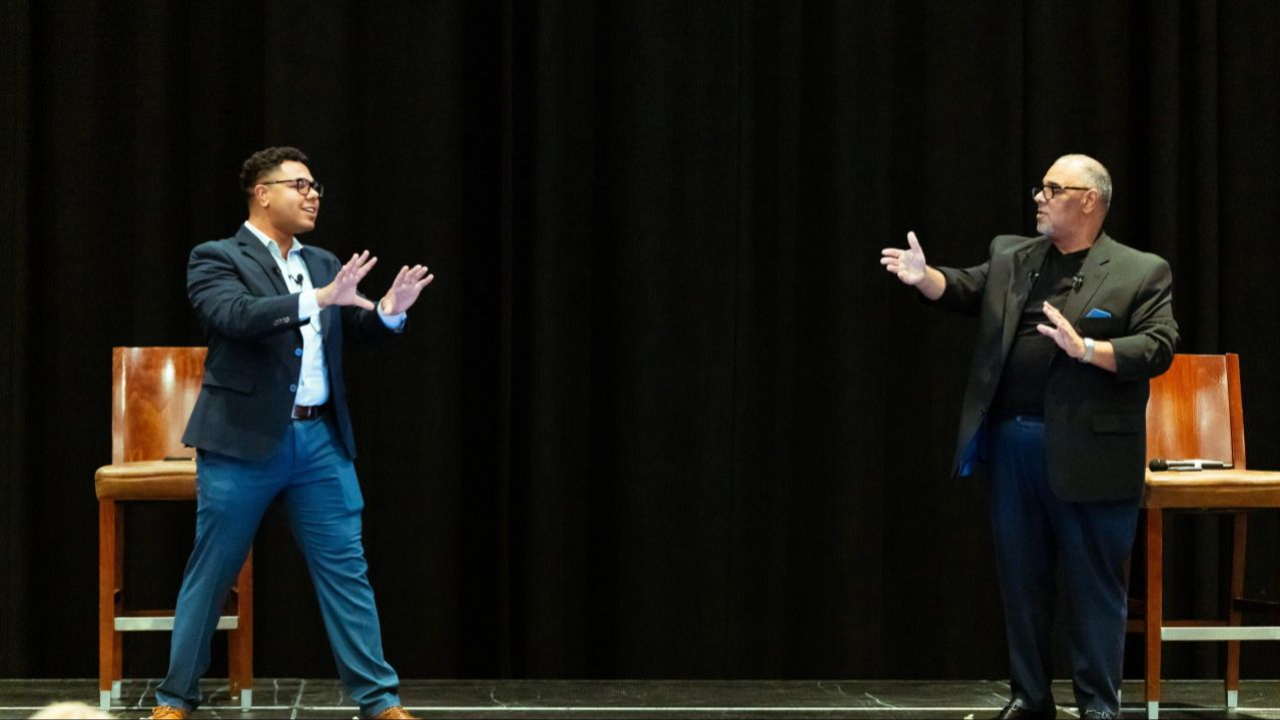
What Sons Wish Their Fathers Heard
Oct 31, 2025What Is Empathetic Listening, Really?
At its core, empathetic listening means putting your full attention on your son—not to fix, correct, or critique, but to understand.
It means listening without:
- Thinking about how you’ll respond
- Checking your phone
- Mentally preparing your next lecture
- Dismissing his emotions or experiences
Empathetic listening is choosing presence over performance. It’s about showing your son that his voice matters, even when you don’t agree, even when you don’t quite “get it.”
When I (Brian) was raising Avery, I didn’t always get this right. There were times I was quick to offer solutions before really hearing what was underneath the surface. It took me a while to realize that sometimes he didn’t want answers. Sometimes, he just wanted camaraderie. Once I made space to listen without judgment (which is still a challenge for me), our relationship began to shift. He trusted me more. He opened up more. And I got to see who he was becoming, not just who I wanted him to be.
Now, as adults growing a business together, that same listening skill is the foundation of our partnership.
4 Simple Ways to Build a Listening Culture at Home
You don’t need a Ph.D. in parenting to become a better listener. You just need to practice. Here are four ways to make listening a regular part of your fatherhood culture:
1. Lead with Curiosity, Not Control
Instead of jumping in with advice, try saying:
“Help me understand what’s been going on.” “Tell me more about how that felt.” “What would make this better for you?”
Invitations like these encourage your son to be more than a passive participant in the conversation. They let him know you’re listening to learn, not just to lead.
2. Try a “Don't Fix It” Challenge
Challenge yourself to just listen for 10 minutes. Don’t correct, don’t coach, don’t fix. Just hear him out. This can be on the car ride home, a walk, or after dinner.
Avery and I did this when he was a teen, especially during stressful times like finals or sports drama. I’d bite my tongue when I wanted to jump in, and almost every time, he’d end the conversation with something like, “Thanks for hearing me out.” There was still a reward. Those little moments built trust.
3. Create “Listening Zones” at Home
Designate times and spaces where your son knows he has your full attention. No phone, no multitasking, no background noise. Maybe it’s Sunday breakfast. Maybe it’s five minutes before bed. The consistency matters more than the duration.
4. Model What You Want to See
Let him see you share. Talk about how your day went. Admit when something stressed you out. Be willing to say, “I don’t have it all figured out.” Vulnerability from you makes it safer for him to open up, too.
When Avery and I were rebuilding our relationship when he was 18, it wasn’t the big sit-down conversations that made the difference. It was the smaller, honest ones where we admitted, “Hey, I missed that,” or “I didn’t handle that well.” That mutual humility changed everything.
The Bottom Line
Empathetic listening isn’t just a soft skill—it’s a fatherhood superpower.
It’s what builds bridges during the years your son is most tempted to drift away. It’s what makes space for real conversations, emotional growth, and long-term trust.
And guess what? You don’t have to be perfect. You just have to be present.
Avery and I have walked this road. We’ve had the hard conversations, the awkward silences, the emotional blowups—and the breakthroughs. That’s why we do this work now: to help other fathers and sons find their way back to each other.
We are rooting for you!
Avery and Brian
